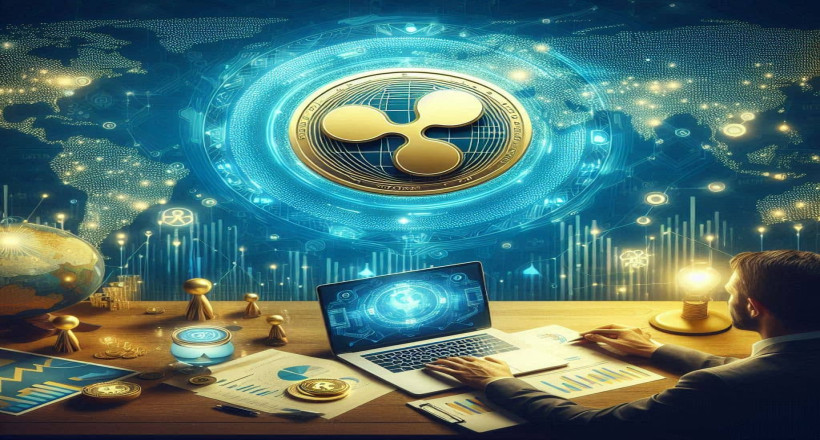
What is Ripple and how does it work?
In the world of cryptocurrencies, Ripple is a well-known name that has attracted the attention of users and investors alike. This project aims to facilitate international financial transactions while reducing associated costs. Its native cryptocurrency, known as XRP, plays a crucial role in its ecosystem. In this comprehensive article, we’ll delve into Ripple, its technology, use cases, and its cryptocurrency, XRP.
What is Ripple?
Ripple is the name of a financial technology company founded in 2012. The company developed its blockchain-based payment system to create a global network for faster and more cost-effective money transfers. Unlike Bitcoin or Ethereum, which focus on decentralization, Ripple acts as a bridge for financial institutions, banks, and payment networks.
Ripple primarily helps banks and financial institutions simplify and reduce the costs of international settlements.
What is XRP Cryptocurrency?
XRP is the native cryptocurrency of the Ripple network, designed to facilitate financial transactions within the ecosystem. It acts as a "bridge currency," enabling quick conversions between different currencies. For instance, if Bank A wants to send money to Bank B, it can use XRP to do so faster and at a lower cost.
Key Features of Ripple and XRP
High Transaction Speed:
Ripple transactions are usually completed within seconds, whereas Bitcoin
transactions may take hours.
Low Transaction Costs:
Transaction fees on the Ripple network are much lower compared to other
blockchain networks like Bitcoin or Ethereum.
High Scalability:
The Ripple network can process about 1,500 transactions per second, making it
one of the fastest blockchain networks.
Use by Banks and Financial Institutions:
Unlike many cryptocurrencies, Ripple closely collaborates with banks and
financial institutions to enhance traditional financial infrastructures.
Pre-Mined Supply:
The total supply of XRP was created at its inception, and no additional mining
occurs. Out of the 100 billion XRP tokens, a portion is held by Ripple Labs.
Pros and Cons of Ripple and XRP
Pros:
Fast and Low-Cost Transactions: Especially useful for international money transfers.
Partnerships with Major Financial Institutions: High trust and adoption.
High Scalability: Capable of handling large transaction volumes simultaneously.
Cons:
Centralization
Concerns:
Ripple is criticized for being somewhat centralized, as a significant
portion of the tokens is controlled by the company.
Legal
Challenges:
Ripple has faced legal scrutiny, particularly from the U.S. Securities
and Exchange Commission (SEC). These challenges can impact XRP's value.
Differences Between Ripple, Bitcoin, and Ethereum:
|
Feature
|
Ripple (XRP)
|
Bitcoin (BTC)
|
Ethereum (ETH)
|
|
Transaction Speed |
A few seconds |
10 minutes or more |
A few minutes |
|
Transaction Cost |
Very low |
Relatively high |
Medium |
|
Scalability |
About 1,500 transactions/sec |
7 transactions/sec |
About 20 transactions/sec |
|
Use Case |
Global money transfers |
Store of value |
Smart contracts |
|
Centralized/Decentralized |
Partially centralized |
Fully decentralized |
Mostly decentralized |
Use Cases of Ripple and XRP
International Money Transfers:
Banks and financial institutions can reduce cross-border payment costs using
XRP.
Liquidity Improvement:
XRP serves as a bridge currency, facilitating the exchange of different fiat
currencies.
International Payment Systems for Corporations:
Ripple offers an excellent alternative to SWIFT and other traditional payment
systems.
Does Ripple Have a Promising Future?
The future of Ripple largely depends on resolving its legal issues and gaining wider adoption in banking networks. While XRP has high potential, price volatility and regulatory uncertainties remain significant challenges.
Conclusion:
Ripple and its cryptocurrency XRP are among the most innovative blockchain projects, designed to transform traditional financial infrastructures. Despite criticisms regarding centralization and legal challenges, Ripple’s speed, low transaction costs, and diverse applications make it a compelling option for investment and financial use cases.